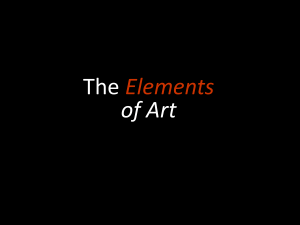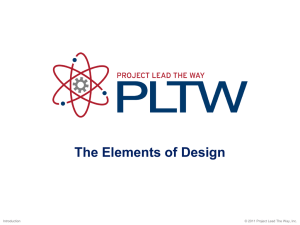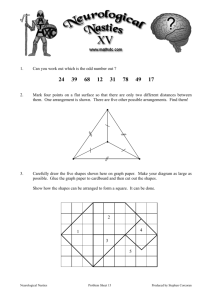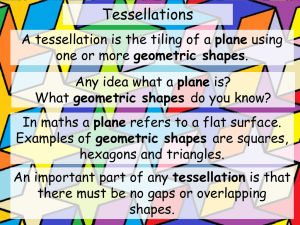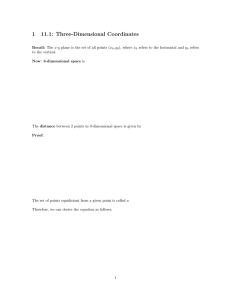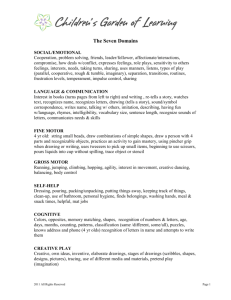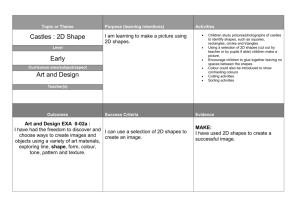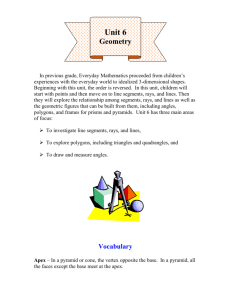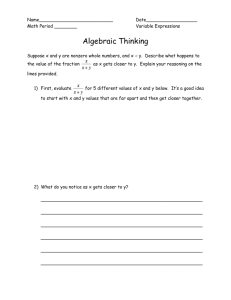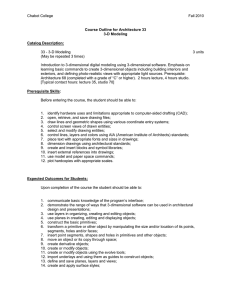Positive space
advertisement
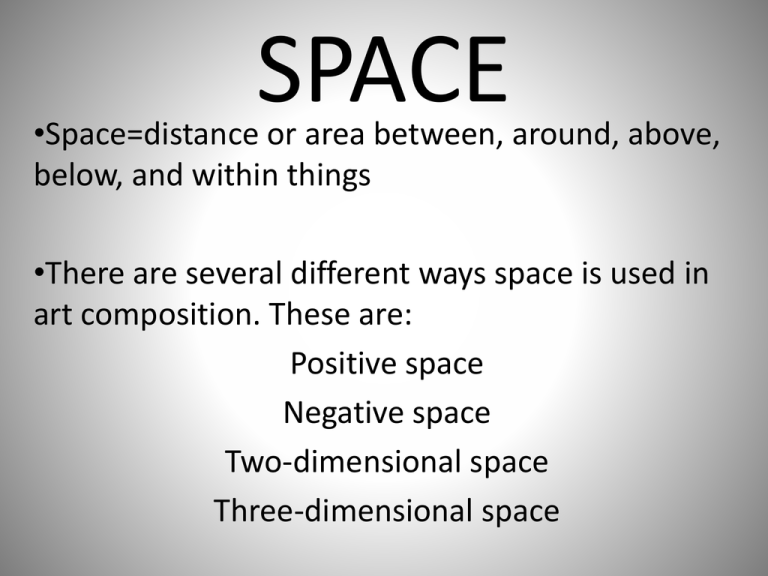
SPACE •Space=distance or area between, around, above, below, and within things •There are several different ways space is used in art composition. These are: Positive space Negative space Two-dimensional space Three-dimensional space 3-Dimensional •3-dimensional art deals with space naturally (ex. Your wire sculpture) •Has width, height, and depth •A free standing object •Can add or subtract to form 2-Dimensional • 2-dimensional art can be created to look like it deals with space and is 3-dimensional • Techniques to create depth include: – – – – – – Overlapping Size Focus Placement Intensity and Value Linear Perspective Overlapping=placing shapes over others Size=making distant shapes smaller than closer ones Andrew Wyeth’s CHRISTINA’S WORLD Focus=adding more detail to closer objects, less detail to distant objects Placement=placing distant objects higher up in the picture, closer ones lower down Edward Hopper’s THE NIGHT WINDOW Intensity and Value=using colors that are lower in intensity and lighter in value for objects in the distance Linear perspective=slanting lines of buildings and other objects so they seem to come together in the distance Class Exercise POSITIVE SPACE • Positive space is the "occupied" areas in a work of art that is filled with something such as, lines, colors and shapes. • It is the primary subject matter of a painting; the animals, plants, building, mountain, vase, people, etc., that forms your areaof-interest. NEGATIVE SPACE • Negative space (a.k.a. whitespace in page layout), is the unoccupied areas that surround the subject matter. • It is defined by the edges of the positive space it surrounds. M. C. Escher • • • • • One of the world’s most famous graphic artist Master of using positive and negative space He worked with architecture, perspective, and space In most all of his work he filled every space on the page Known mostly for his mathematical prints called tessellations • Tessellations are designs featuring animals, birds, plants, shapes etc, which can fill the page, without over-lapping, to form a pattern. It's the simplest kind of jigsaw puzzle: all the pieces look alike!
